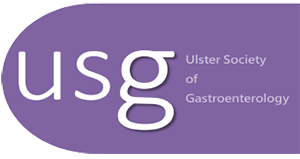FOLFIRINOX for Advanced Pancreatic Ductal Adenocarcinoma (PDAC) at the Northern Ireland Cancer Centre
Authors
Taylor K1, Devlin O1, Deane A1, Harrison C1, Purcell C1, Eatock M1,2, Turkington RC1,2Departments / Institutions
1 Northern Ireland Cancer Centre, Belfast City Hospital, Belfast, Northern Ireland. 2 Centre for Cancer Research and Cell Biology, Queen’s University of Belfast, Belfast, Northern Ireland.Publication Date
Autumn 2017Introduction
Treatment with 5-Fluorouracil, Folinic acid, Irinotecan and Oxaliplatin (FOLFIRINOX) chemotherapy improves progression-free (PFS) and overall survival (OS) in advanced PDAC but has considerable toxicity. We compared chemotherapy and survival outcomes at the Northern Ireland Cancer Centre with published data.
Methods
Treatment and survival outcomes were collected for all patients with locally advanced or metastatic PDAC treated with FOLFIRINOX chemotherapy at the Northern Ireland Cancer Centre between 2013 and 2015. Survival analysis was performed using the Kaplan-Meier method and locally advanced pancreatic cancer (LAPC) and metastatic patient clinic-pathological characteristics were compared using the χ2 test.
Results
Of the 22 patients identified, 12 (55%) had locally advanced pancreatic cancer (LAPC) and 10 (45%) had metastatic disease. The median age for all patients was 57 (range 41-74) with a median number of treatment cycles delivered of 10 (range 1-12) and 7 patients (32%) completing all planned cycles. The median PFS in the LAPC and metastatic groups was 6.8 and 10.1 months respectively (HR 2.08, 95% CI 0.80-5.4; p= 0.75). The median OS in the LAPC and metastatic groups was 10.0 and 11.5 months respectively (HR 1.17, 95% CI 0.46- 2.96; p= 0.75). Dose reductions were required in 17 (77%) of patient and the disease control rate (DCR) was 50% and 80% in the LAPC and metastatic groups respectively (p=0.038).
Conclusion
Treatment with FOLFIRINOX at the Northern Ireland Cancer Centre results in response and survival rates comparable to published data but dose reductions are required in most patients to aid tolerability.
Latest News
Gastroenterology FK Meeting Provision and Challenges
Posted on: 2nd April 2021Latest Event
There are no up-coming events.E-Publications
Download our latest Documents


